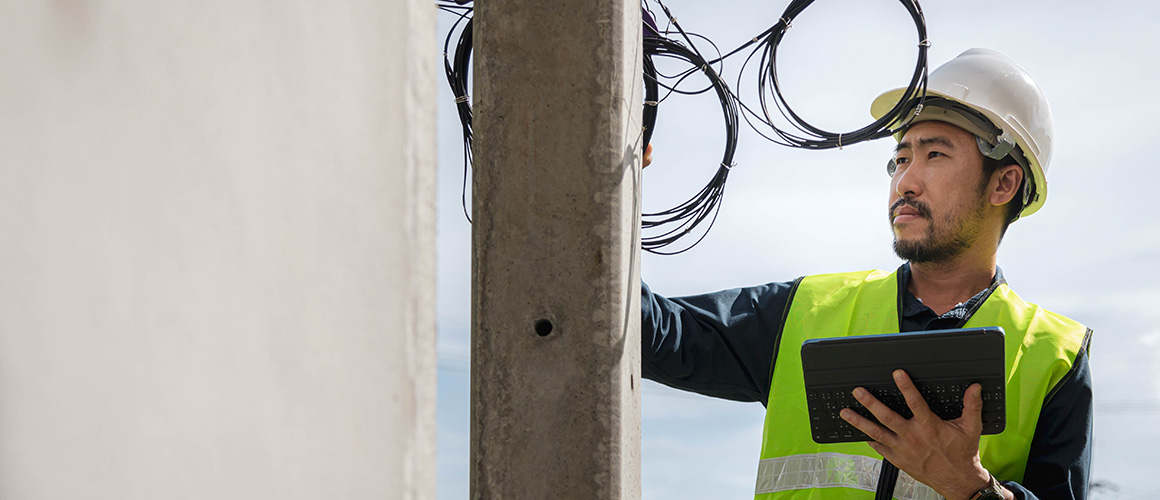Detailing the utility company’s copper to fiber transition in the District of Columbia
 Overview
Overview
Verizon DC has fundamentally upgraded the telecommunications infrastructure across the District of Columbia. This transformation replaced decades-old copper wire networks with modern fiber-optic cables, representing a significant technological upgrade that provides District residents with more reliable, advanced communication services that support emerging digital technologies.
In response to consumer complaints about Verizon's marketing tactics and network transition, the Public Service Commission of the District of Columbia (DCPSC) launched a
formal investigation in January 2013 (Formal Case No. 1102). The investigation aimed to ensure consumer protection and transparency during this significant infrastructure change.
Learn more about Verizon’s fiber upgrade in the District.
Service options for consumers
The transition introduces two distinct wireline voice service options for District residents:
- Traditional landline voice service over fiber facilities represents a familiar communication method, closely mirroring the copper-based services consumers have used for years. However, this service may experience interruptions during power outages, representing a key difference from previous infrastructure.
- FiOS digital voice service offers a more advanced communication solution. As an IP-based service, it provides capabilities that were impossible with traditional copper networks. This service introduces new features and functionalities that reflect the evolving nature of telecommunications technology.
Technical insights
The shift from copper to fiber is more than a simple wire replacement. Copper facilities were powered directly by Verizon and typically remained operational during power interruptions. In contrast, fiber facilities require connection to a home or business power source and utilize an optical network terminal (ONT), similar to an internet modem.
Each fiber installation may include a backup battery system designed to provide up to 24 hours of service during power outages using batteries supplied by the customer. This ensures that even during electrical disruptions, residents can maintain critical communication capabilities. Most existing telephone equipment will continue to work on the new network, minimizing disruption for consumers.
Regulatory oversight and consumer protections
A
comprehensive review of the transition by the DCPSC provided several critical determinations to protect consumer interests:
- FiOS digital voice was classified as a VoIP service, which falls outside direct Commission regulation.
- Emergency 911 services continue to function, with one critical caveat: service depends on maintaining either home power or sufficient ONT battery backup. Consumers should understand their specific power requirements to ensure uninterrupted emergency communication capabilities.